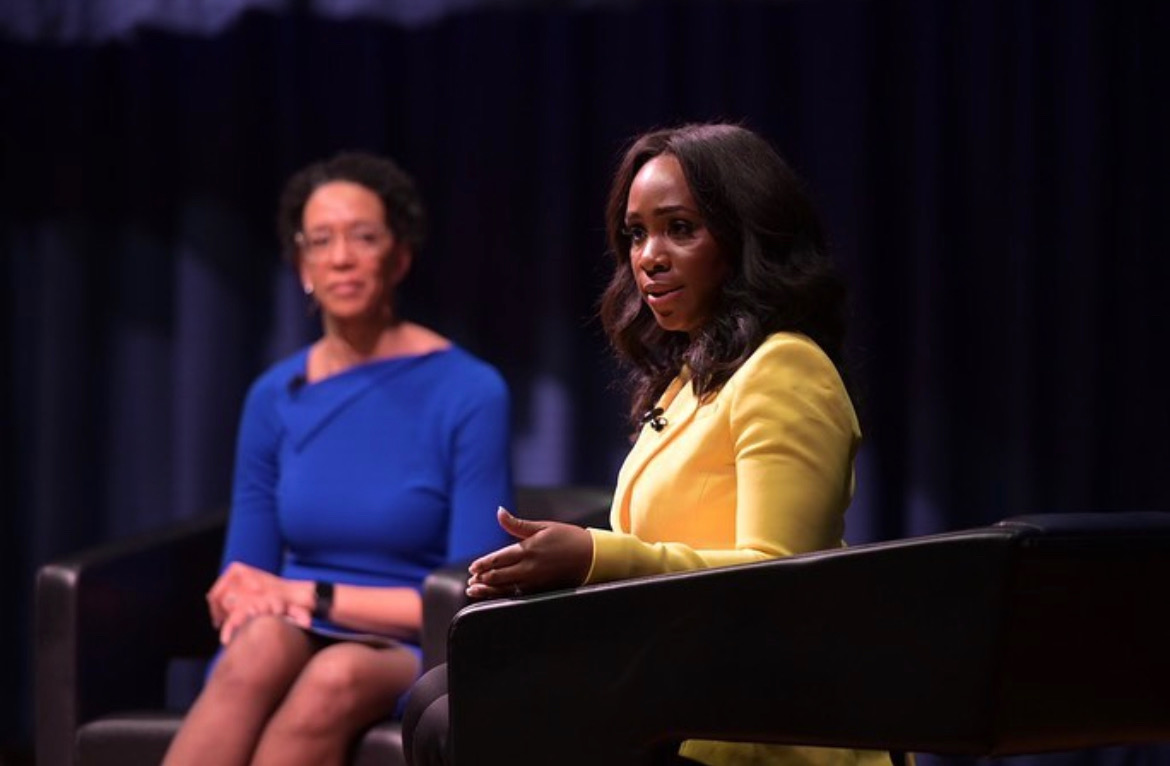By Elaine Amico
As Kean closes out Black History Month, they welcome world-renowned journalist Abby Phillip to speak with students and faculty on the world of journalism, and how the profession is slowly becoming more diverse.
Kean President Dr. Lamont Repollet, Ed.D. started the lecture by giving the audience a glimpse on the history of the Distinguished Lecture Series.
“When my predecessor President Dawood Farahi started this Distinguished Lecture Series, his goal was to bring prominent national thought leaders and changemakers to Kean so that our students, faculty, and staff, as well as the broader community, could learn from top minds in the country,” President Repollet said. “We have certainly delivered on that promise.”

Darlene Repollet was ecstatic to welcome Phillip and moderated the Q&A.
Darlene Repollet agreed that there was no better way to close out black history month, than by welcoming one of the most important voices on diversity and equity.
Phillip dove into many heavy questions and addressed a common question among Americans today. “Which news networks are unbiased and fully objective?” According to a recent poll from the Knight Foundation, “nearly half of all Americans think the media is very biased.” Phillip responded to this concern of Americans.
“Whenever I am asked this question, I actually want to turn it around. I really think we may need to consider retiring the word objectivity,” Phillip said.
Phillip further explained that theory by discussing how we all are influenced by who we are, our personalities, where we come from, where we grew up, what languages we speak, etc. It shapes how we see the world we live in, how we prioritize information, and how we approach our observations, which is even more common for journalists. It allows us all to bring different things to the table than our peers or colleagues.

The belief that we as individuals all have unique features to bring to the table, was a common theme of the night.
Phillip said that as a black woman, she sees things differently than her colleagues.
“Recently, one of my white male colleagues tweeted about how there was a policy that put money aside for doulas. You could tell by the tweet that he didn’t know what a doula was, but felt money was being wasted on it,” Philip said.
She explained that as a black woman, who recently gave birth to her daughter with the help of a doula, money being put aside for a doula means something completely different to her than it did to her colleague.
Black women are disproportionately facing the possibility of negative outcomes in childbirth. Birth workers like doulas are part of a strategy to rectify that.
“It’s an example to me of coming to the same facts with different perspectives, and bringing different things to the table,” Philip said.
Phillip was asked about the higher standard she is held to as a black woman, in terms of looking presentable in regards to her appearance. She explained that it is certainly an unethical standard and an unfortunate reality for most black women out there.

When being on television, you are going to have people making criticisms about your appearance. Phillip feels the real question lies within whether your appearance affects the likelihood of promotion and different opportunities that may come your way.
“One of the things I found by watching other strong people, is just do it! If you want to put your hair in braids, just do it,” Phillip said. “We’re at a point where if that’s what you want to do, force them to say something to you.”
When individuals show up how they want to, it makes it easier for everyone else to follow in their footsteps. Phillip exclaimed that we as a society still have a long way to go, but she feels we are moving in the right direction.
In addition to the lecture given, students on the journalism track had the opportunity to have a personal 30-minute lecture with Phillip. Students were able to ask personal questions and learn about Phillip’s entrance into the world of journalism at such a young age.

You must be logged in to post a comment.